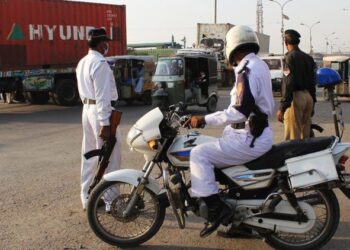Pakistan among dozens of countries are rushing to evacuate their citizens and diplomatic staff from Sudan, where fighting between rival forces has entered its second week.
On April 15, fighting has erupted across Khartoum and at other sites in Sudan in a battle between two powerful rival military factions, engulfing the capital in warfare for the first time and raising the risk of a nationwide civil conflict.
What triggered the conflict?
Tension had been building for months between Sudan’s army and the paramilitary Rapid Support Forces (RSF), which together toppled a civilian government in an October 2021 coup.
The friction was brought to a head by an internationally-backed plan to launch a new transition with civilian parties. A final deal was due to be signed earlier in April, on the fourth anniversary of the overthrow of long-ruling autocrat Omar al-Bashir in a popular uprising.
Both the army and the RSF were required to cede power under the plan and two issues proved particularly contentious: one was the timetable for the RSF to be integrated into the regular armed forces, and the second was when the army would be formally placed under civilian oversight.
International parties have called for humanitarian ceasefires and a return to dialogue, but there have been few signs of compromise from the warring factions or lulls in the fighting.
The army has branded the RSF a rebel force and demanded its dissolution, while Hemedti has called Burhan a criminal and blamed him for visiting destruction on the country.
Who are the main players on the ground?
The protagonists in the power struggle are General Abdel Fattah al-Burhan, head of the army and leader of Sudan’s ruling council since 2019, and his deputy on the council, RSF leader General Mohamed Hamdan Dagalo, commonly known as Hemedti.
As the plan for a new transition developed, Hemedti aligned himself more closely with civilian parties from a coalition, the Forces for Freedom and Change (FFC), that shared power with the military between Bashir’s overthrow and the 2021 coup.
Diplomats and analysts said this was part of a strategy by Hemedti to transform himself into a statesman. Both the FFC and Hemedti, who grew wealthy through gold mining and other ventures, stressed the need to sideline Islamist-leaning Bashir loyalists and veterans who had regained a foothold following the coup and have deep roots in the army.
Along with some pro-army rebel factions that benefited from a 2020 peace deal, the Bashir loyalists opposed the deal for a new transition.
Evacuations:
Saudi Arabia, USA, France, Pakistan and other countries have started to their embassy staff and citizens from Sudan as other nations sought to help their citizens escape deadly fighting between rival generals.

This file photo taken on October 07, 2017 shows a view of the exterior of the US Embassy in the Sudanese capital of Khartoum. File Photo: AFP
The Saudi foreign ministry said on Saturday that more than 150 people, including Pakistanis, foreign diplomats, and officials, rescued from battle-scarred Sudan have arrived in Jeddah.
It announced the “safe arrival” of 91 Saudi citizens and around 66 nationals from 12 other countries – Kuwait, Qatar, the United Arab Emirates, Egypt, Tunisia, Pakistan, India, Bulgaria, Bangladesh, the Philipines, Canada and Burkina Faso.
US troops evacuated embassy staff from Sudan’s capital, President Joe Biden announced on Sunday.
“Today, on my orders, the United States military conducted an operation to extract U.S. Government personnel from Khartoum,” Biden said in a statement released late Saturday night, Washington time.

He expressed gratitude for the “unmatched skill of our service members who successfully brought them to safety”, adding that Djibouti, Ethiopia and Saudi Arabia had helped in the operation.
Sudan’s army said Saturday its chief Abdel Fattah al-Burhan had received calls from leaders of multiple countries to “facilitate and guarantee safety for evacuating citizens and diplomatic missions”.
Burhan, meanwhile, told Saudi-owned Al-Arabiya TV that the army was in control of “all airports, except for Khartoum airport” and one in Nyala, the capital of South Darfur.
More plans are being made to evacuate foreigners, with South Korea and Japan deploying forces to nearby countries, and the European Union weighing a similar move.
The German ministers of defense and foreign affairs held a crisis meeting Saturday on a possible evacuation, after three military transport planes had to turn back Wednesday, according to German weekly Der Spiegel.
The World Health Organization (WHO) said more than 420 people had been killed and over 3,700 wounded in the fighting across Sudan, but the actual death toll is thought to be higher.



































